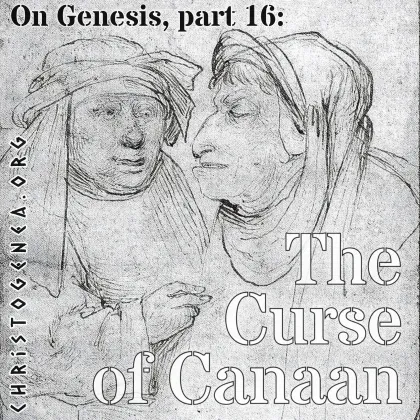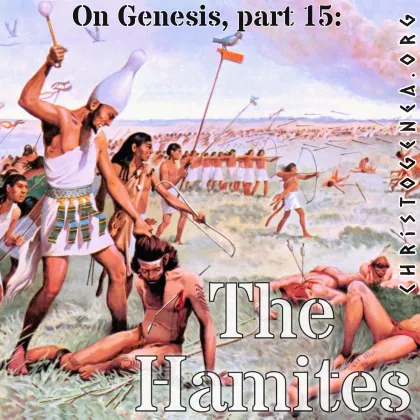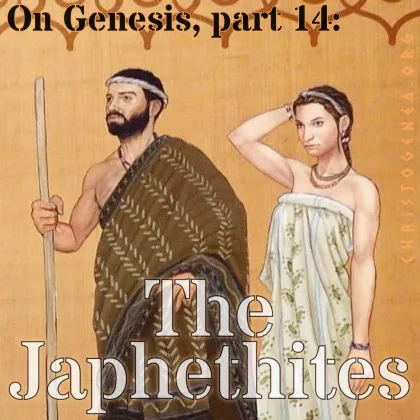On Genesis, Part 16: The Curse of Canaan

On Genesis, Part 16: The Curse of Canaan
In our last presentation of this commentary on Genesis we had discussed the first three of the sons of Ham, which are Cush, Mizraim and Phut. Now we shall discuss the youngest, or at least, the last one mentioned, which is Canaan. As we had explained when we presented Genesis chapter 9 and Thy Father’s Nakedness, since Canaan was cursed as a result of Ham’s having seen “the nakedness of his father”, as we read the account in Genesis chapter 9, then that phrase must have been a euphemism for another act, and therefore the birth of Canaan must have been the result of what is seen in the law in Leviticus chapter 20 where it says in part that “11 … the man that lieth with his father's wife hath uncovered his father's nakedness.” Having done that, we had also presented passages from Leviticus chapter 18 which further explain that the nakedness of a man’s wife is also the man’s nakedness.
But we cannot imagine that Canaan was cursed merely because Ham saw his own father naked, as we had also explained, with examples from Scripture, how in ancient times men had regularly seen one another naked even throughout the course of a typical workday, at least in certain vocations or activities. So that alone would not justify the curse of Canaan, but Noah certainly would have been justified to curse Canaan if Ham had violated his wife, which was also Ham’s own mother, and if Canaan was the result of such a union. Subsequent events in Scripture also justify Noah’s curse of Canaan, as Yahweh had upheld his words so that they became prophetic of the fate of Canaan. When Yahweh upholds a man’s words, it is because the words are just and the man had uttered them righteously. This we read of the young prophet Samuel, in 1 Samuel chapter 3: “19 And Samuel grew, and the LORD was with him, and did let none of his words fall to the ground.”





 There is now a prototype mobile Android app for the Christogenea Forum. You may download it at the link below. You may need to change the settings on your Android-compatible device in order to install this app. For that, see the following article:
There is now a prototype mobile Android app for the Christogenea Forum. You may download it at the link below. You may need to change the settings on your Android-compatible device in order to install this app. For that, see the following article: 



 Please click here for our mailing list sign-up page.
Please click here for our mailing list sign-up page.








Recent comments